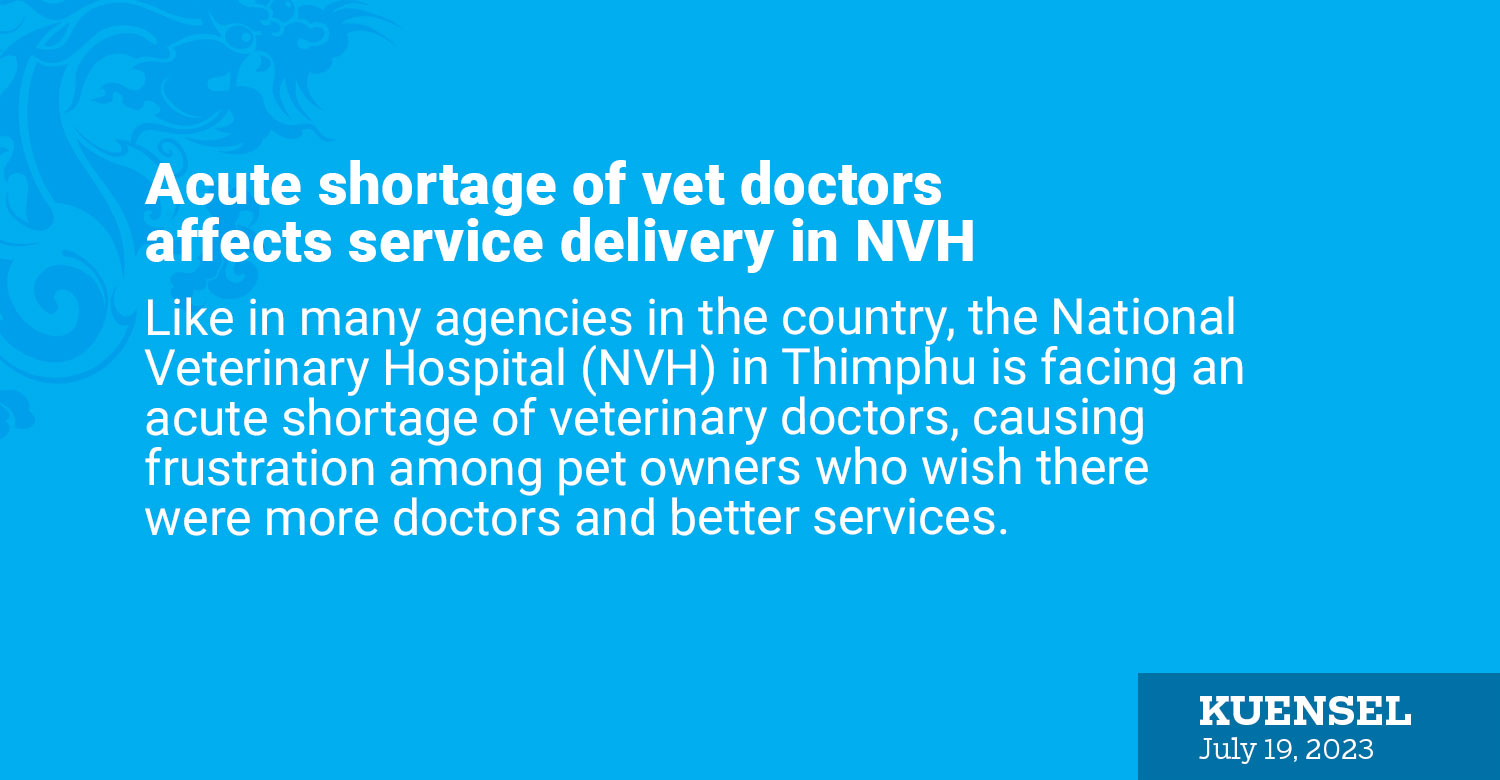Sonam Dema | Intern
Like in many agencies in the country, the National Veterinary Hospital (NVH) in Thimphu is facing an acute shortage of veterinary doctors, causing frustration among pet owners who wish there were more doctors and better services.
A dog named Azhim was brought for treatment at the NVH because her stomach was excessively bloated. Her kidneys could not remove excess fluid from her body which caused the bloating. Helpless, the owner said that she wished the hospital had more doctors to attend to the animals.
Veterinary Doctor Nima Wangdi said that the situation is worsened by Bhutanese professionals leaving for Australia, which affects the overall working environment for those who remain. The hospital receives around fourty to fifty cases per day, making it difficult for the existing staff to handle the workload while providing twenty-four-hour service to the public.
Recently, about nine workers at the NVH resigned and pursued opportunities in Australia, with more employees planning to follow suit in various government offices. This exodus not only impacts the NVH but also other government departments.
In a recent media report, the agriculture and livestock minister Yeshey Penjor said that the country is not only in short of veterinary doctors but also a shortage of livestock extension supervisors to cater to the people depending on the livestock sector for livelihood.
The Civil Service Statistics Report 2022 show that 80 people from the agriculture and livestock services left the system last year, creating a gap in the service delivery.
“Attending to phone calls, answering messages online and looking after all the walk-in animal patients are too stressful” Nima added.
He also said, “We cannot complete some of our financial work at the hospital and therefore take them back as home-assignments. This leads to less family time and more stress.”
As the number of disease outbreak increases within the country, the pressure has mounted on the existing service providers. For example, about 4,500 animals died from diseases such as the African swine fever, foot and mouth disease, lumpy skin disease, rabies, and highly pathogenic avian influenza last year.
The NVH currently has about 24 staff with only four doctors who work from 9am to 3pm or 3pm to 9pm. The hospital had 33 staff before 9 of them left.
When the hospital was first inaugurated in 2018, it had more than 60 staff.


